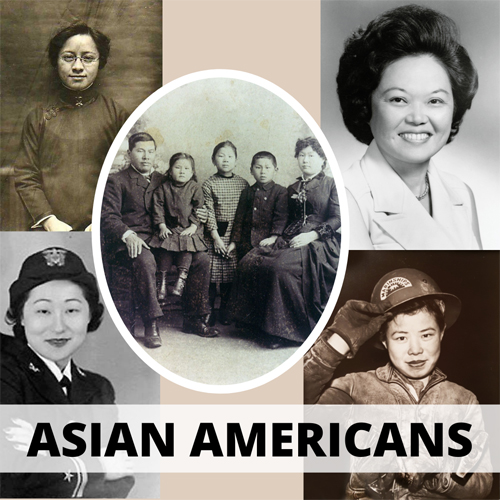- /Home
Women's Equality Day Challenge: Do You Know These 5 Notable AAPI Women?
As Women's Equality Day is celebrated on August 26, eGirl Power would like to pause to consider this moment in American history. The women's suffrage movement began in 1848 at the Seneca Falls Convention and the 19th amendment of the U.S. Constitution was certified on August 26, 1920, but the fight was not over for some American women.

Tye Leung Schulz (top left); Patsy Mink (top right); Susan Ahn Cuddy (bottom left); Toi Lonnie Young (bottom right); Tape Family (center)
Women in the Asian American Pacific Islander (AAPI) community did not achieve equality on August 26. It would be 23 years before Chinese-American women would gain the right to vote, and another nine years later for Japanese-American women.
Before the U.S. government granted women the right to vote, the state of California had already done so in 1911. Just one year later, Tye Leung Schulz became the first Chinese-American woman to cast her ballot. Leung was no stranger to breaking AAPI stereotypes. Born in San Francisco, Leung was the first Chinese-American woman who held a federal government position. She assisted Chinese immigrants at Angel Island Immigration Station. When interviewed for the momentous occasion, Leung said "We want to do our whole duty more…It is conscience."
Perhaps conscience is what drove Patsy Mink to become the first congresswoman of color to serve in the U.S. House of Representatives. The path was littered with barriers, but Mink shattered them one by one. Undeterred after an initial loss for state senator, she won her subsequent attempt. Mink went on to co-author Title IX of the Higher Education Act to ensure equal opportunities for women and protect against discrimination on the basis of sex and gender.
Despite these amazing AAPI women, stereotypes continue to persist. AAPI women face the stereotype of not only race, but also gender. Whether it is the "model minority" narrative or the submissive or fetishized misrepresentation, AAPI woman must battle against these inaccuracies to carve out their seat at the table. Only through sharing the historic achievements of AAPI women may we begin to break bias and misconceptions.
History provides an abundance of notable AAPI women such as Susan Ahn Cuddy, a Korean-American woman, who enlisted after the bombing of Pearl Harbor to become the first Asian American woman in the Navy. Cuddy would later rise to the rank of Lieutenant with a storied career as a gunnery officer, flight instructor, and code breaker. But perhaps Mary Tape, the Chinese-American mother who fought for her daughter's right to a public school education, said it best when she emphatically stated "We have always lived as Americans."
As Americans, the AAPI experience and role in American history is one that must be told. While we cannot change our history, we can acknowledge it and educate future generations, and finally, dispel age-old misconceptions and hurtful stereotypes.
eGirl Power, a 501(c)3 nonprofit organization, invites you to celebrate Women's Equality Day by supporting its AAPI initiative to dispel stereotypes and the misrepresentation of AAPI females, and unite efforts to #StopAsianIHate. Please visit the eGirl Power AAPI Initiative to learn more about how you can help.


